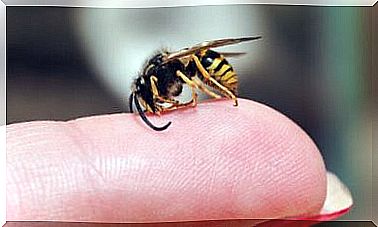Children With Self-regulation Problems: What To Do? – Being Parents

Have you noticed that your child sometimes acts impulsively in an emotional situation? Does he find it difficult to calm down under certain circumstances? This can happen to children who have self-regulation issues. Here we will see what we can do when a child has this kind of problem.
Many situations require that we have the ability to self-regulate. Children must have this capacity for self-regulation on a daily basis.
Children with ADHD (Attention Deficit Hyperactivity Disorder) and those with sensory processing issues may not have this ability, so they may not know how to self-regulate in busy situations. in emotions.
Children with self-regulation problems: what is self-regulation?
You can confuse self-control with self-regulation, but they are two different things, even though they are related.

- Self-control. It is a social skill that helps children gain control over their behavior, impulses and emotions.
- Self-regulation. It’s also a skill, but it’s about managing the emotions, behaviors and movements of the body when we are faced with a complicated or difficult situation, and it keeps us alert and focused on it.
Self-regulation helps children learn to calm down if they are upset, so that they can avoid outbursts of frustration. This is why it is normal for a 4 year old to have a temper tantrum because they have not yet learned to self-regulate, but if a 12 year old does, it means there is a problem of self-regulation.
How does self-regulation work?
To understand self-regulation, we can use a “thermostat”. What does a thermostat do? This mechanism is prepared to adjust the temperature of a heater; when the room reaches a certain temperature, it stops, and when it falls below that temperature, it starts up again.
To do this, you must know the setpoint in order to be able to stop or continue heating.
Self-regulation is a similar process ; children also have a “set point” which they reach when they are able to control their emotions and behaviors appropriately.
But, in order to maintain this control, they must know what their “set point” is so that, in a given situation, they can assess how they feel and react so as not to exceed that point. This process has a lot to do with, and what they do with, how they process information and emotions.
Self-regulation and ADHD
A child with ADHD has trouble controlling their emotions, which is why they often react disproportionately. It should also be remembered that children who have this problem also do not have adequate impulse control and may do things that are not appropriate for the situation they are facing.
This is why children overreact, because they are not able to stop, think about the situation they are going through and look for solutions.
Self-regulation and sensory processing difficulties
Children with sensory processing difficulties have problems using information picked up by the senses: touch, sight, hearing, smell and taste, and others we are less familiar with, such as interception, proprioception and the vestibular.
The root of the problem is the nervous system, which has difficulty with self-regulation. For this reason, if the child is immersed in a situation where there is a sensory increase, he is not able to self-regulate, and leaves his emotions and behaviors out of control.
How can we help children who are struggling with self-regulation?
We can help children if they have self-regulation issues, but how? The first thing to do is to know when the information they are perceiving is a problem, whether it is through the senses or through thought.

What are the necessary steps for self-regulation?
- Self-awareness. Whether the problem with self-regulation is from a child with ADHD or a child with difficulty in sensory processing, you need to show them which situations can generate intense emotional stress. If we are planning an event in which we think the child will have a bad time, it is good to warn him in advance; this will help him prepare.
- Pulse control. A child with ADHD, even though they know there are solutions to certain situations, cannot avoid the urge to get angry or frustrated. Here, parents play an important role in helping the child to better manage his emotions and reactions, to teach him to develop skills to overcome them.
- Set goals. We should strive to set small, realistic goals, so that little by little the child is able to set bigger goals for himself.
Helping children with self-regulation issues
As we have seen, some children have self-regulation issues and therefore it is important that we know the development of our children in relation to their age.
In addition to everything we have said to help children solve this problem, parents can also talk to their children to explain to them what their “set point” is, which is where they feel good. .
But we still need to point out ways to deal with frustration and anger. All children with this problem can use a self-regulation activity sheet.









